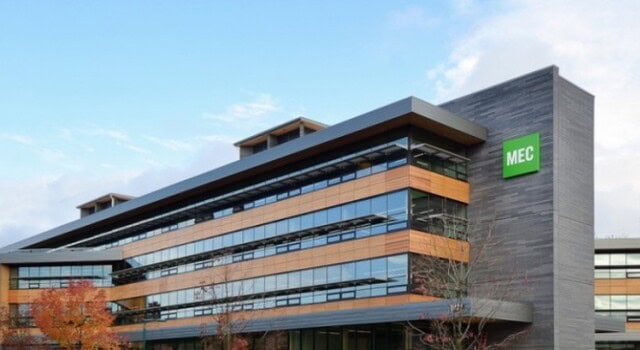
BC outdoors retailer MEC lost $11.5 million last year
Vancouver-based outdoor equipment retailer MEC plans to sublease its 112,000-square-foot head office, which it built for $28 million and moved into in late-2014.
The company has already started scouting the market for a new headquarters that will be about one-third the size somewhere in Metro Vancouver, CEO Phil Arrata says.
Arrata said that the sublease and new head office will save the company millions of dollars annually — “far less than 10 million, maybe a couple million.”
The 22-store, 2,400-employee retailer, which manufactures about 20 per cent of its products, has struggled financially, losing $11.5 million in its 2018-19 fiscal year, which ended in February.
Arrata would not speculate on how much money the company will lose in its current fiscal year, although he hinted that losses could exceed those of last year. His aim is to get the company to be cash-flow positive in the 2020-21 fiscal year, he said.
One reason that the current fiscal year could be worse than last year is that MEC sold real estate in the 2018-19 fiscal year and booked a one-time capital gain. No such transactions took place this year, he said.
One real estate transaction is on the horizon, but it is just a move and not a property sale.
MEC plans to move its longtime flagship store at 130 West Broadway to a newly built store at 101 East Second Ave., near Quebec Street. That store is likely to open in March or April.
Another of his changes will be to the line of MEC-branded products that the company manufactures. Arrata believes that MEC makes too many different products. Many of its self-made products fail to sell well, forcing MEC to discount or otherwise liquidate them, he said.
“We’re looking at more depth versus breadth,” he said. Some MEC-branded products — such as so-called toaster suits, or kids’ onesies — sell so well that they are often out of stock, so resources should be put toward ramping up production of those items, he explained.
Another change is that some stores will also get fewer, but larger, deliveries in an attempt to reduce work, cut delivery costs and reduce the company’s carbon footprint, he said.


